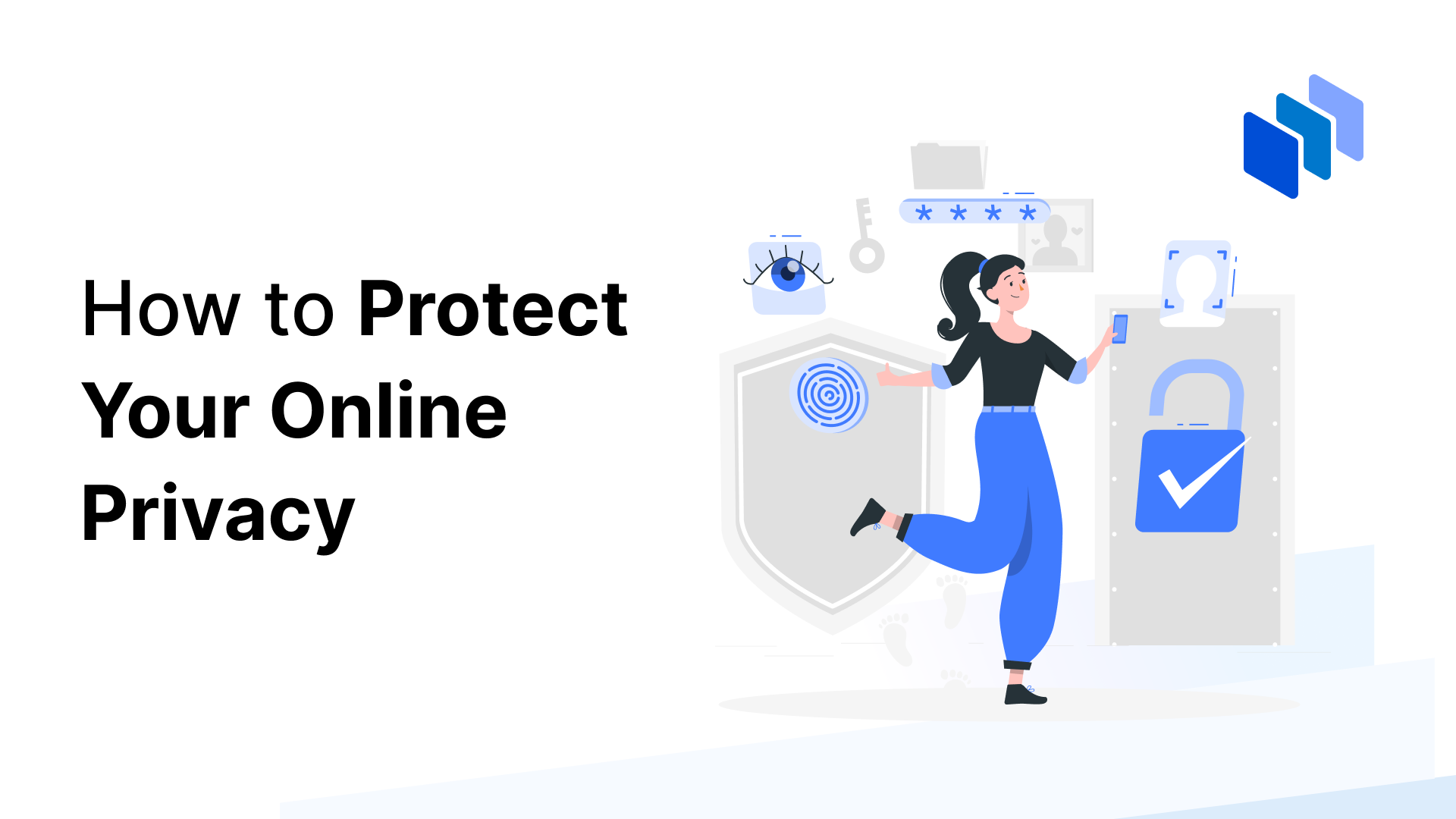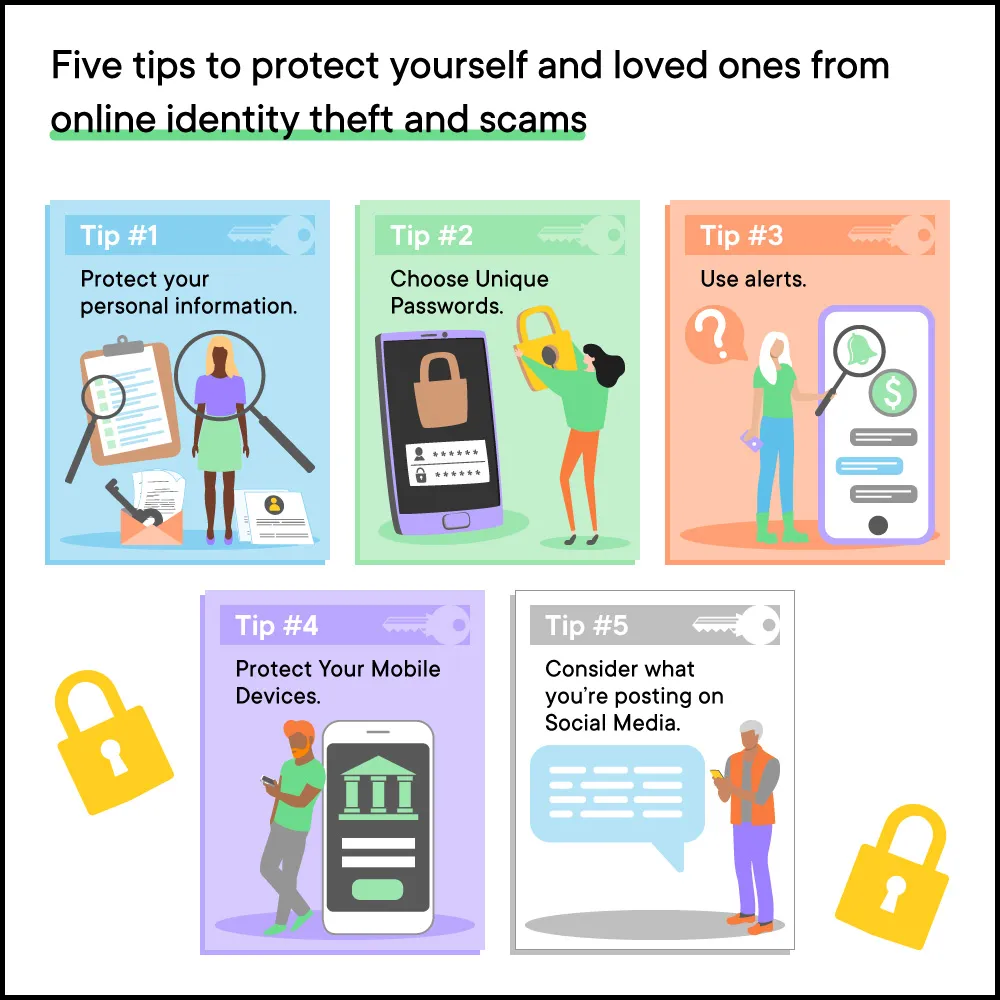Technology
Internet Privacy: Protecting Your Online Identity and Data

The internet has revolutionized the way we connect, communicate, and access information. However, this vast digital landscape also raises critical concerns about our online privacy. Every time we browse the web, shop online, or use social media, we generate a digital footprint – a trail of data that can be collected, analyzed, and even used against us. This blog delves into the importance of internet privacy, explores the various threats to our online data, and equips you with essential strategies to safeguard your digital identity.
Beyond Convenience: Understanding the Importance of Online Privacy
Online privacy refers to our right to control our personal information in the digital world. This includes control over what data is collected about us, how it is used, and with whom it is shared. Here’s why online privacy matters:
- Protection from Identity Theft: Breaches of data containing personal information like names, addresses, and Social Security numbers can lead to identity theft, a serious crime where someone impersonates you to gain access to money, credit, or other resources.
- Targeted Advertising and Profiling: Companies collect data on your online activities to create detailed profiles and bombard you with targeted advertising. This can be intrusive and limit your online experience.
- Government Surveillance and Discrimination: Governments and law enforcement agencies can collect and analyze vast amounts of online data, raising concerns about mass surveillance and potential discrimination.
- Erosion of Trust and Control: The lack of control over our online data can erode trust in the digital ecosystem and create a sense of vulnerability.
Real-Life Example 1: Identity Theft and Data Breaches
In 2021, a major data breach at a retail company exposed the personal information of millions of customers. This breach included names, addresses, and Social Security numbers, putting customers at risk of identity theft. This incident highlights the importance of protecting your personal information online.
A Labyrinth of Threats: Common Threats to Online Privacy
Several threats lurk in the digital shadows, jeopardizing our online privacy. Here are some of the most common ones:
- Tracking Cookies: These small data files placed on your device by websites track your online activity and browsing habits.
- Web Beacons: These tiny graphic elements embedded in websites can track your browsing behavior and send information back to advertisers or other third parties.

Real-Life Example 2: Cookies and Targeted Advertising
Have you ever searched for a specific product online and then seen ads for that same product popping up on other websites? This is likely due to tracking cookies that monitor your browsing activity and tailor advertising based on your interests.
- Social Media Privacy Settings: Social media platforms collect a vast amount of data about your online activity, including your posts, messages, and even your location. Inadvertently sharing too much information publicly on social media can compromise your privacy.
- Malware and Spyware: These malicious software programs can infiltrate your device and steal your personal information, browsing history, and even keystrokes.
- Phishing Attacks: These deceptive emails or messages attempt to trick you into revealing sensitive information like passwords or credit card details.
Real-Life Example 3: Phishing Attacks and Email Scams
Phishing emails often appear to be from legitimate sources like banks or credit card companies. They may contain urgent messages prompting you to click on a link or download an attachment. These links or attachments can contain malware that steals your personal information.
Building Your Digital Fortress: Strategies for Protecting Your Online Privacy
Fortunately, you can take steps to protect your online privacy and reclaim control over your digital footprint. Here are some key strategies:
- Be Mindful of What You Share Online: Think twice before sharing personal information on social media or other public platforms.
- Adjust Privacy Settings: Most websites and social media platforms offer privacy settings that allow you to control who can see your information and activity.
- Use Strong Passwords and Multi-Factor Authentication: Create strong, unique passwords for all your online accounts and enable multi-factor authentication (MFA) for added security.
- Clear Your Browsing History and Cookies Regularly: This helps minimize the data websites can collect about your online activity.
- Use a Privacy-focused Browser: Consider using a web browser that prioritizes privacy and offers features like blocking tracking cookies and web beacons.
Real-Life Example 4: Privacy-Focused Browsers
Some web browsers prioritize user privacy by offering features like blocking third-party trackers and incognito mode for private browsing. Using these browsers can help reduce the amount of data websites can collect about your online activity.
- Be Wary of Public Wi-Fi: Avoid accessing sensitive information or financial accounts on public Wi-Fi networks as they are less secure.
- Use a VPN (Virtual Private Network): A VPN encrypts your internet traffic and routes it through a remote server, making it harder for third parties to track your online activity and location.
Real-Life Example 5: VPNs and Public Wi-Fi Security
When using public Wi-Fi at a coffee shop or airport, consider using a VPN to encrypt your internet traffic. This adds an extra layer of security and makes it more difficult for hackers to intercept your sensitive information.
- Be Cautious About Downloading Files and Clicking on Links: Only download files from trusted sources and avoid clicking on suspicious links or attachments in emails, especially from unknown senders.
- Stay Informed and Update Software: Keep your operating system, web browser, and other software applications updated with the latest security patches to close any potential vulnerabilities.
- Advocate for Stronger Privacy Laws: Support initiatives and legislation that promote online privacy and protect user data.
Real-Life Example 6: The Importance of Software Updates
Software updates often contain critical security patches that fix vulnerabilities that could be exploited by hackers. Keeping your software up to date is essential for protecting your online privacy and security.
A Collaborative Effort: The Future of Online Privacy
The fight for online privacy requires a collaborative effort from various stakeholders:
- Individuals: Taking an active role in protecting their online privacy by following best practices and demanding greater control over their data.
- Technology Companies: Developing privacy-focused technologies and giving users more granular control over their data settings.
- Governments: Enacting comprehensive data protection laws that balance the needs of innovation with the right to privacy.
- Privacy Advocacy Groups: Raising awareness about online privacy issues and advocating for stronger regulations.
Real-Life Example 7: The General Data Protection Regulation (GDPR)
The European Union’s General Data Protection Regulation (GDPR) is a landmark regulation that gives individuals greater control over their personal data. It requires companies to obtain consent before collecting user data and grants users the right to access, rectify, or erase their data. The GDPR serves as a model for other countries and regions to consider when developing their own data protection laws.
Conclusion: A More Secure Digital Future: The Importance of Online Privacy
Online privacy is not a luxury; it’s a fundamental right. By understanding the threats, adopting essential strategies, and advocating for change, we can create a more secure digital future where we can enjoy the benefits of the internet without sacrificing our privacy. The responsibility lies with each of us to be vigilant about our online activities and take control of our digital footprint. Are you ready to build your digital fortress and safeguard your online identity?
